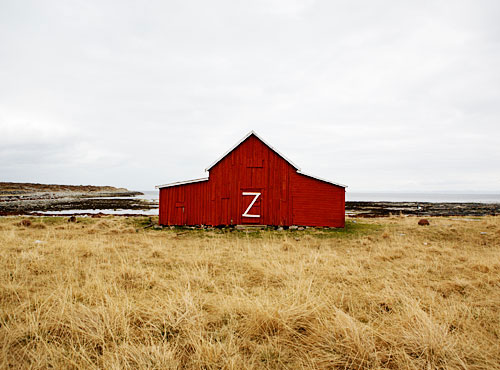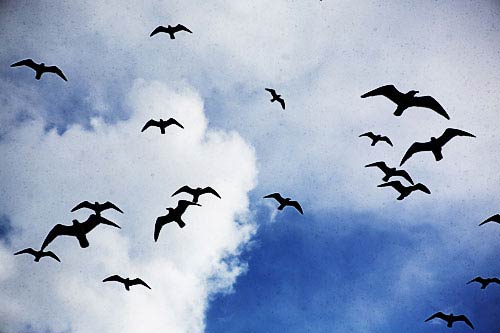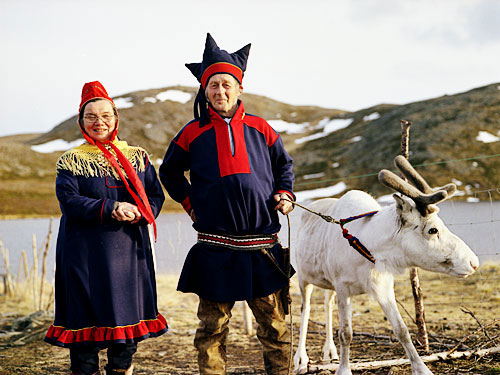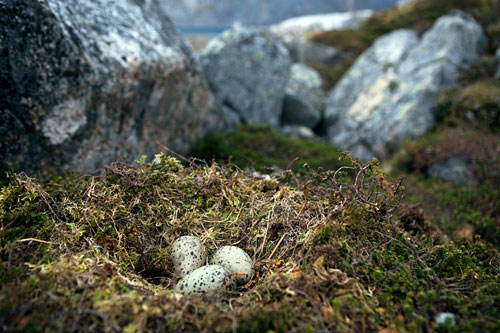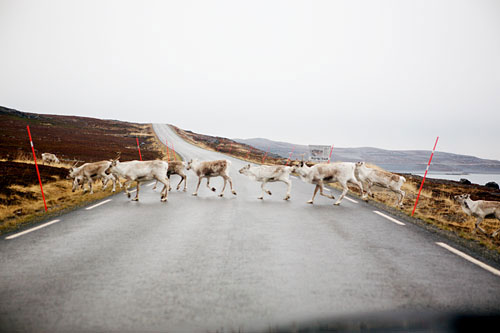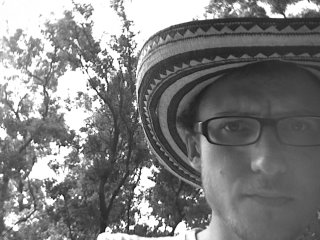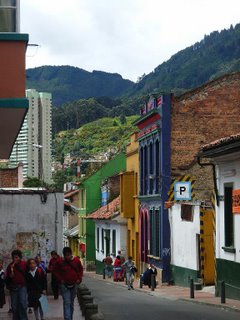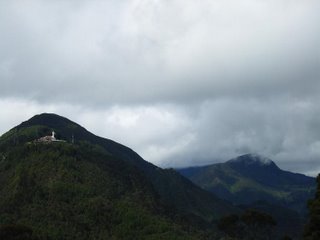A. Today I have lived for exactly 26 years, which means I am no longer classified, formally, as "youth". I have been alive for 9496 days.
B. I am currently living in an old terrace house, which I share with two girls, Jess and Laura. The house has the word MENAI printed on its front facade, above the roof of the front porch. The Menai were the Greek goddesses of the lunar months, the fifty daughters of Selene (the Moon) and Endymion, the king of Elis and Olympia. They each represented one of the fifty lunar months of the four year Olympiad. I have the third room as you progress from the front door, down the hallway. My bedroom is fairly full of items, clothes, books, boxes, cds and other items. On the walls there are 42 postcards, a chart with the letters of the Arabic alphabet, a large diagram of the skeletal system, a reprint of an old map of Australia (missing Tasmania), 24 prints of drawings by Marcel Dzama which are attached to metal rods with bulldog clips, a framed poster advertising a 2003 Mount Eerie/Mountain Goats/Baptist Generals concert in Anacortes, Washington, six small black frames containing Chinese paper-cut characters, and a reproduction print of a 1936 promotional poster for the Palestinian Tourist Association. My bedspread is navy blue with a very fine pin stripe and my bed linen is black. My house is in Lake Street, which is geographically in Northbridge, but technically counted as Perth (because of strange jig-jagged urban zoning) which is the state capital of Western Australia, Australia.
C. I am currently in bed, with my computer on my lap, a wonderful breeze coming through my window and the occasional light spindrift from the thin mist of summer rain hitting my bare shoulders. I am listening to Benjamin Britten's War Requiem. There is soft light from a paper lantern. It is after 1.00am on December 8th and I am tired, having worked ten hours today over a 13 hour period.
D. I am also hungry. In the last 24 hours I have eaten: 1 x bowl of Wild Berry Fruity Bix with milk; many chocolates while in a three hour meeting at work; a Bean Burger with chili cream from Retro Betty's Burgers in Oxford Street, Leederville and two fairly old mini chocolate muffins which were home-made by my boss, Sharon. I was planning to go to the Moon cafe for dinner after work but then I had emails to write and this thing to write, so hungry I remain. This is a common pattern for me - I am terrible at keeping myself in supply of three balanced meals a day. Despite this I currently weigh 70 kilograms and I am 182 cms tall, making my body mass index 21.1, which is healthy enough, apparently.
E. I currently have two paid jobs (bookstore, out-of-school care centre), one smooth alabaster 1.83GHz Macbook, one dental filling, no pets. I am borrowing a car from Gene Eaton, who is in Europe, for a couple of weeks, but usually I ride my bike almost everywhere. My favourite ride is from Leederville to home when its a beautiful still night and the road is empty of traffic and the Morton Bay Fig trees smell rich and pungent. My least favourite ride is around the river towards the university when the sea-breeze is blowin' right towards me and my backpack is very heavy.
F. I have earlier tonight been notified that I am one of seven Australians who have been accepted to the Peace and Conflict Studies Specialisation, as part of a Master of Arts (International Relations) at the Australian National University in Canberra and the International Peace Research Institute / Bjørknes College in Oslo, Norway in 2007. This means that (if I choose to accept) I will spend six months in Canberra from February next year, followed by a semester in Oslo and then another in Canberra. This is exciting news, but there is still a little bit of thinking to be done, as I have also been accepted for a Master of Social Science (International Development) at RMIT in Melbourne, and this also looks like a great course. That said, I think the Canberra/Oslo option is the way I am likely to go, despite the fact that pretty much the best thing our capital had going for it - the legality of fireworks - is no longer applicable.
G. I am not affiliated with any organised religions, though I believe humans should remain humble and inquisitive always, and that we have, on the whole invented a reality to frame ourselves in which is inherently corrupt, self-serving and largely arrogant, and that needs to be changed, in significant ways. I believe strongly in non-violence, but am not strictly a pacifist. I identify in particular ways with all three monotheistic religions and find myself regularly concerned with trying to help rescue Islam in particular from misunderstandings, distortions or misrepresentations. Which is kinda like trying to use a farm plough to flatten the oceans, I fully realise.
H. I currently have about 402 Australian dollars in my savings account, along with $A28.50 in my wallet. I will be paid a further $A298 later today. There's another $US10 in my desk drawer, along with coins from Colombia, Israel, Thailand and Costa Rica. I owe $A100 to my parents for a speeding fine I apparently (according to the multinova photographs) attracted a few months ago, which I have only just found out about.
I. I have been to 34 countries (Australia, Indonesia, Singapore, Thailand, Cambodia, Laos, Vietnam, Nepal, Philippines, Hong Kong (pre-unification), Israel, Egypt, Ghana, Burkina Faso, Mali, Senegal, Spain, France, UK, Germany, Netherlands, Sweden, Norway, Denmark, Czech Republic, Austria, Canada, USA, Mexico, Cuba, Guatemala, Colombia, Brazil, Argentina) - 35 if you count the Palestinian Territories (actually, I do).
J. I am currently the co-President of the Perth chapter of CISV - Building Global Friendships. I am a director on the National Board of CISV Australia and a trainee on the CISV International Mosaic Committee. CISV is a worldwide non profit organisation working with young people to promote peace education and cross cultural friendship. In the last 365 days I have attended three international events for this organisation - an International People's Project in Phang Nga, Thailand; the Asia Pacific Regional Workshop in Manila, Philippines and a Seminar Camp in Medellin, Colombia.
K. My appearance has changed very little since last year. Until a week ago I had a month-old moustache for reasons of charity, but it has been replaced by the regular facial hair. On my wrists are two Brazilian wish band ribbons, one green and the other red, as well as two bracelets (1x black, 1x brown) from the Colombian Amazon, made from vegetable ivory. At the moment I am otherwise naked, unless you count the doona.
L. On my birthday today (after I sleep for four hours or so) I will be rising early, going to Claremont Pool, completing a refresher training for my Aquatic Rescue certificate, coming home, sleeping a little more, going to work at the bookstore and fielding enquiries regarding the location (in our store) of this Christmas's sleeper hit(!) book title, Where's Bin Laden, which is kinda like Where's Waldo/Wally but, like, with Osama instead of big Wal, which, wow, how clever, don't you think Carrie will think this is hilarious, what a perfect Xmas pressie, maybe I'll get one for Rebecca too, but is it her sense of humour, oh yeah sure, why not, get three etc. Also: I will eat cake.
M. I am currently reading The Book of Daniel by E.L. Doctorow. The last DVD I hired and watched was The L Word Season 2 Disc 1. The last gig I went to was Jason Molina at the Rosemount Hotel. The last girl I kissed will have to remain nameless this year, as I am fairly confident she would prefer it that way.
N. I do not currently have a girlfriend, I am not dating anybody, I am not engaging in repeated casual sexual relations with anybody and I do not have any crushes of significance. I am aiming to seperate the intimate and the sexual into two different spheres, and feel mostly like they would best be coming from mutually exclusive sources at this point rather than combined into the package of a single romantic relationship. And, in fact, the sexual I am putting aside as much as possible for as long as possible, so to concentrate almost exclusively (or at least increasingly) on the intimate (ie: close friendships, without lies or fictions). I need this.
O. I have a goal to speak English, French, Spanish and Arabic fluently by 2014 - there has been little progress on this plan in the last year, and while I have refreshed my Spanish brain while in Colombia and maybe added a bit of knowledge in this area I have carelessly lost a lot of the Arabic I gained in 2005. I plan to concentrate on the Spanish in 2007 and also add to this a devoted one year goal to getting some Norwegian under my wing, should I actually come to live there. Sommerfugl = butterfly or, literally, "summerbird". I hope!
P. I have never taken mind-altering or hallucinogenic drugs, I have never smoked cigarettes, I have never been drunk and I have never drunk coffee. I do eat meat though, and I eat a lot of sugar.
Q. Often, recently, I have felt so distanced from people and from the world and from all the values and opinions and lifestyles and reactions and emotions that humans seem to have, that at times I have ended up feeling almost invisible. Sometimes this makes me feel angry, sometimes very sad. Sometimes it makes me feel resolute and strong and gives me direction - sometimes it thrashes me down and renders me completely directionless. Sometimes I don't understand people so much I want to scream and melt. That said, there are a selection of people I am fortunate enough to know and love who just seem so ready to change everything, just teetering there, just on the ridge of great things, or, actually, possibly already achieving them right now, right under my nose, and I'm just not noticing properly while I'm focusing too much on all the people who aren't. These people, these people who swirl around me and perform brilliantly, and who we are all blessed to live alongside, I also sometimes feel invisible in their world, ghost-like and shadowed, but at the same time, they are and they will always be a constant inspiration and source of wonder to me.
State of My Life Address 2005 (25 years)

